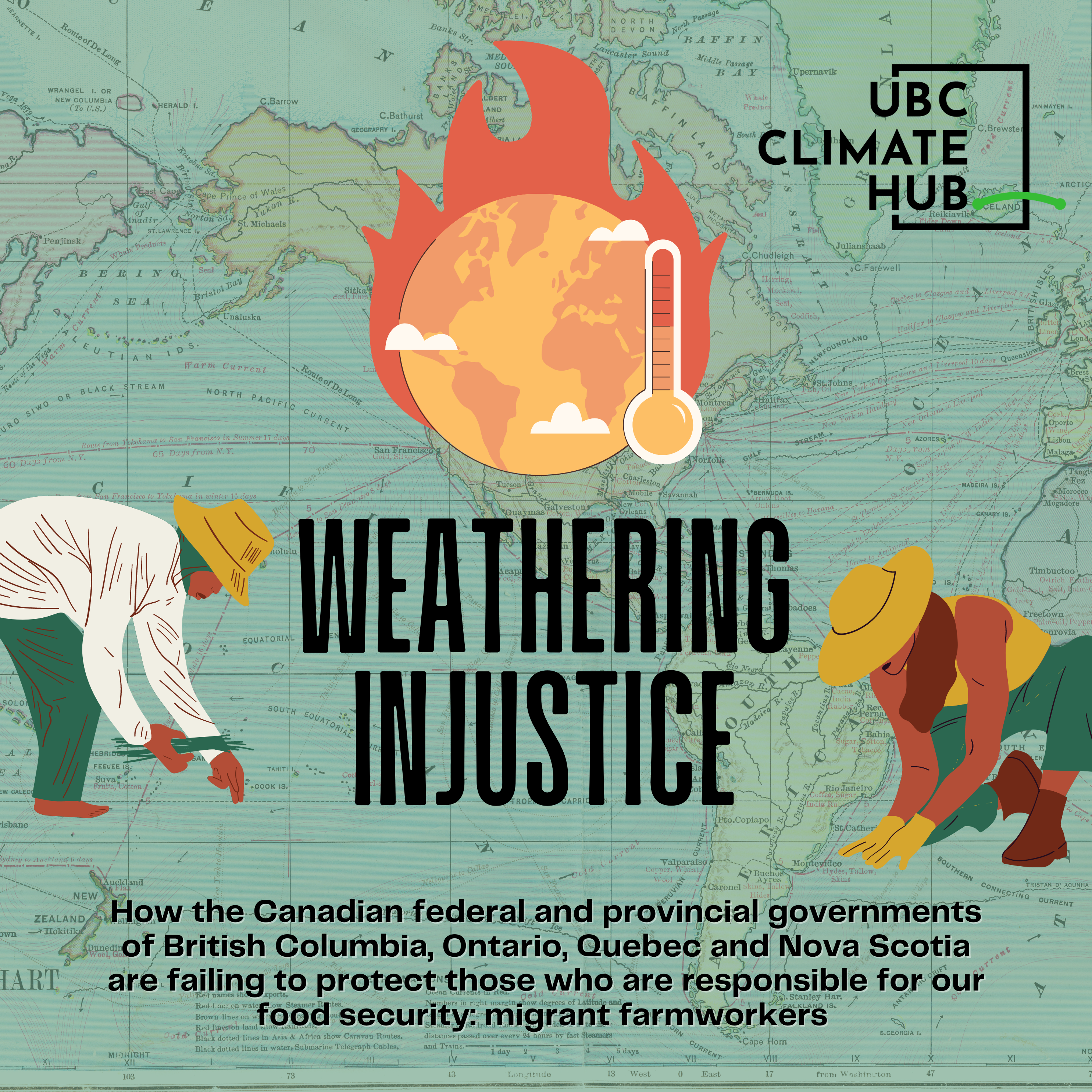
Author: Emily Hansen, Rhea Dinesh, Carrie Schulz, Andy Thompson
Faulty Supervsior: Dr. Antje Ellermann
Community Partner: Climate Hub
Graduate Academic Assistant: Lorah Steichen
Year: 2023

In a country that boasts about being a champion for human rights for all internationally, the Canadian and provincial governments do not showcase the same attitude towards migrant farmworkers within their own territorial jurisdictions. Despite government efforts to address the impact of climate change on the agricultural sector, very few efforts have been directed towards protecting migrant farmworkers in light of extreme weather events. Hence, this report will take a climate justice lens in highlighting extreme weather events as an additional threat to migrant farmworkers’ health and safety. Climate justice advocates for a shift in the focus of climate change dialogue away from economic imperatives and technical solutions, to protecting the human rights of those most vulnerable to its effects, both globally and locally.
While we have not spoken to migrant farmworkers directly, we aim to highlight their experiences that exist in the public domain. We recognize that while we cannot speak for migrant farmworkers themselves, our goal is to highlight the discrepancies in the law and uplift the recommendations that advocacy groups make. Our contribution to discussion regarding the health and safety of migrant farmworkers is the inclusion of climate in the discussion as a potentially threatening factor that could compound the threat to migrant farmworkers’ health and safety.
In compiling this report, a comprehensive literature review was conducted, and qualitative data was collected and expert interviews took place. The report will provide an brief overview of British Columbia, Ontario, Nova Scotia and Quebec provinces, address the impacts of extreme weather, provide an overview of the agricultural sector, and review how current policies and regulations are inadequate in protecting migrant farmworkers in each province respectively.